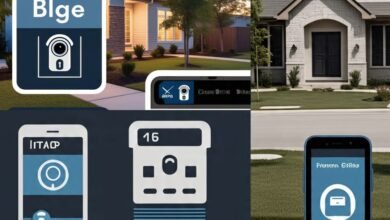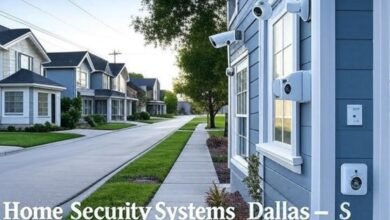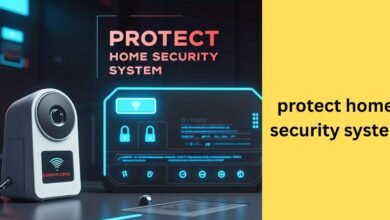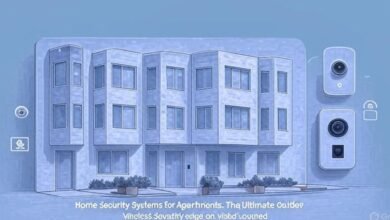The Complete Guide to Alarm Home Security Systems: Protect What Matters Most
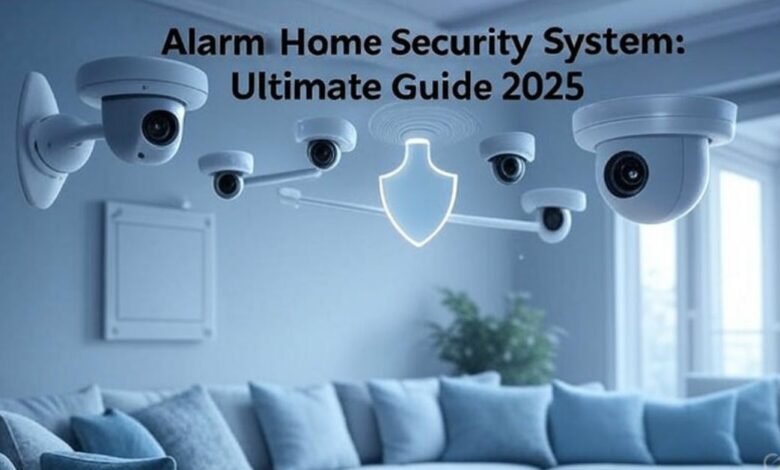
Introduction
Home security isn’t just a convenience—it’s a modern-day essential. With crime rates on the rise and burglars becoming more sophisticated, investing in a reliable alarm home security system is one of the smartest decisions you can make. But with so many options available, how do you know what’s right for your home? This comprehensive guide walks you through everything from system types to installation tips—so you can choose with confidence.
Table of Contents
What Is an Alarm Home Security System?
An alarm home security system is a network of connected devices designed to detect and respond to potential threats such as break-ins, fires, or gas leaks. These systems typically include motion sensors, door and window contacts, cameras, alarms, and sometimes professional monitoring services. Many modern setups offer smart home integration for full remote control and convenience.
Why You Need a Home Alarm System
Discourage Criminals Before They Enter
Homes without an alarm home security system are far more likely to be targeted by burglars. The mere presence of visible equipment like cameras or signs often deters intruders before they even attempt a break-in.
Protect Loved Ones and Possessions
An alarm home security system doesn’t just guard against theft. It can detect smoke, carbon monoxide, and even flooding, offering a full spectrum of safety for your family and belongings.
Stay Connected Anytime, Anywhere
With remote access through mobile apps, you can check in on your home, receive real-time alerts, and even communicate through security cameras—wherever you are.
Save on Home Insurance
Many insurance companies offer discounts to homeowners with a professionally monitored alarm home security system, helping you lower your premiums while increasing protection.
Types of Home Alarm Systems
Wired Systems
- Pros: Stable and secure with minimal interference
- Cons: Installation can be complicated and costly
Wireless Systems
- Pros: Simple setup and easy to move between properties
- Cons: Requires regular battery changes
Smart Security Systems
These are Wi-Fi-connected systems controlled through apps and smart home assistants. A smart alarm home security system offers features like voice control, remote access, and automation.
Monitored vs. Unmonitored Systems
- Monitored systems connect to a professional service that contacts emergency responders.
- Unmonitored systems send alerts to you directly, giving you control without monthly fees.
Essential Components of an Alarm Home Security System
- Control Panel: The main interface for managing the system
- Entry Sensors: Detect when doors or windows are opened
- Motion Detectors: Monitor specific areas for movement
- Cameras: Record and livestream activity in and around your home
- Sirens and Alarms: Provide audible alerts in case of intrusion
- Mobile App or Key Fob: Allow you to arm, disarm, and monitor your system remotely
How to Choose the Right System for Your Home
Evaluate Your Security Needs
Decide what features you need in your alarm home security system—cameras, environmental sensors, or smart locks might be essential depending on your location or lifestyle.
Set a Realistic Budget
Options start around $100 for basic DIY kits and can go well above $1,500 for advanced systems with professional monitoring.
DIY or Professional Installation
- DIY systems are affordable, flexible, and often include user-friendly app controls.
- Professionally installed systems are perfect for those who prefer expert configuration and setup.
Smart Home Compatibility
If your home already includes smart features like Alexa, Google Assistant, or smart thermostats, make sure your chosen alarm home security system integrates with those devices.
Top Features to Look For
- 24/7 professional monitoring for fast emergency response
- Two-way communication through smart cameras
- HD video surveillance with cloud or local storage
- Automation features like motion-activated lights or smart locks
Installing a Home Alarm System
DIY Installation Tips:
- Attach entry sensors to all exterior doors and windows
- Position motion detectors in key areas like hallways and entry points
- Mount the control panel near your main entrance
- Connect everything to your Wi-Fi and test the system thoroughly
Professional Installation:
Consider professional setup for wired systems or if your home has complex security requirements. A certified technician ensures your alarm home security system is installed correctly and fully functional.
Best Alarm Home Security Systems in 2024
- Ring Alarm: Affordable and easy to install
- ADT Command: Premium monitoring and top-tier support
- SimpliSafe: No contracts with high customization
- Google Nest Secure: Excellent smart home integration
Each alarm home security system on this list has a strong reputation for reliability and user satisfaction.
Maintenance Tips to Keep Your System Effective
- Test the alarm and sensors once a month
- Replace batteries in wireless components annually
- Keep your software and firmware updated
- Make sure cameras have clear, unobstructed views
Regular maintenance ensures your alarm home security system continues to perform at its best.
Common Mistakes to Avoid
- Placing motion sensors near heat sources or direct sunlight
- Ignoring false alarms, which may signal hardware issues
- Failing to upgrade outdated systems, leaving vulnerabilities
A properly maintained and modern alarm home security system provides the highest level of protection.
Conclusion
Choosing the right alarm home security system can make a significant difference in how safe you feel at home. From basic DIY setups to professionally installed smart systems, the right solution will depend on your needs, lifestyle, and budget. Don’t leave your home’s safety to chance—invest in a system that protects what matters most.
FAQs
1. Can I install a home alarm system by myself?
Yes. Many systems, including Ring and SimpliSafe, are built for easy DIY installation.
2. Will the system work during a power outage?
Most alarm home security system models include battery backups to stay functional during blackouts.
3. How much do these systems cost?
Prices vary from $100 for a basic setup to over $1,500 for advanced systems with professional features.
4. Can burglars disable the alarm?
While no system is unbreakable, modern systems use encryption and tamper-proof hardware to prevent interference.
5. Are wireless systems secure?
Yes. Today’s wireless alarm home security system models use encrypted signals and are just as secure as wired ones.

